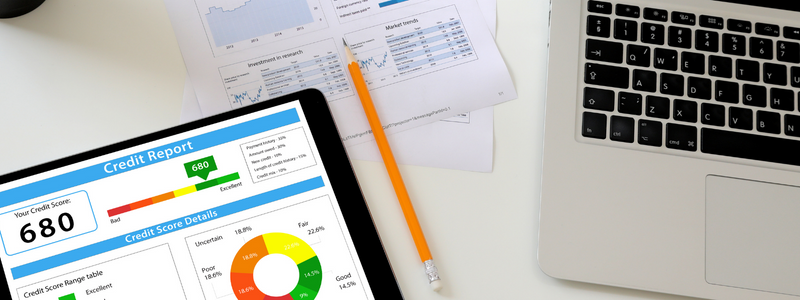
For many people, their credit score doesn’t matter – until it does. If you’re one of those people who only haphazardly used credit, let payments slip or closed accounts because the responsibility was too much to bear, you’re not alone. You’re also not alone in the fact that buying a home, vehicle or any other item of significant value will be exponentially more difficult than had you nurtured your score from the get-go. That said, your credit situation is not completely hopeless. With a bit of discipline, patience and persistence, you can improve your credit score and get on the path to healthy borrowing.
1. Sign Up for a Secured Credit Card
For many people, the problem isn’t necessarily bad credit but a lack of credit. Unfortunately, you need credit to obtain credit. A secured card is one of the best ways to both build your credit and improve your credit score. If approved for a secured credit card, you would need to make a deposit to begin using the allotted limit. The deposit protects the lender in the case of default.
2. Look Into Score-Boosting Programs
If you struggle to qualify for a secured credit card with even the loosest of qualification requirements, look into Experian Boost or Ultra FICO. Both of these programs allow consumers to boost their scores with untraditional financial information. Experian Boost gives the credit bureau permission to review your banking data to ensure you’re paying your utility and telecommunication bills on time. Ultra FICO grants the bureaus permission to view your banking accounts to determine spending habits, which they can then use to determine your creditworthiness.
3. Quit Charging Items to Credit
If irresponsible spending is the reason for your low score, it may be time to put the credit cards away. Credit utilization plays a huge role in your credit score and is second only to payment history. If you continue to charge purchases to cards with already high balances, you only risk making your credit situation worse. If the temptation of available credit is too great, take drastic measures, such as freezing your cards in a cup of ice.
4. Pay Down Your Balances
Once you’ve removed temptation, it’s time to work on reducing those balances. Start with the balances that are past due. In addition to accruing interest, past due balances also acquire late fees. Before you can make real progress on your score, you need to bring all your accounts to current. For many borrowers, this is the most difficult step to take to improve their credit score, as past due balances can be double, triple or even quadruple the minimum monthly payment.
5. Negotiate With Lenders
If you simply cannot afford to pay down past due balances, your creditors may be willing to work with you. After all, they simply want to be repaid. Call your lenders and ask them to waive late fees and interest fees. If that’s not an option, lenders may, at the very least, be willing to reset your minimum amount due to the standard amount.
6. Stay Current on Your Payments
You know how awful it is to fall behind, so don’t let it happen again. By keeping your debts in the green, you can show your creditors that you’ve evolved into the responsible borrower they want you to be. In exchange for your good behavior, they’ll report your timely payments to the credit bureaus, which will, in turn, give your score a boost.
7. Dispute Credit Report Errors
Now that you’ve done the hard part, take a few moments to review your report in depth. If you notice anything that seems off, such as a delinquent account you never opened or an inaccurately reported late payment, dispute it. Even a minor error can reduce your score by as much as 60 to 110 points.
8. Don’t Be Too Hasty To Apply for New Credit
As your score begins to climb, you may notice that new credit card offers flood your inbox. Resist the temptation to apply for every offer you receive. Every new application for credit results in a hard inquiry on your report, which can ding your credit score. If not approved for the offer, your score will go down even more. Wait for your score to climb to the “Fair” or “Good” range before you begin to seek out new credit again.
9. Monitor Your Report
Review your report each month to better understand how well you’re managing your credit and where you should make changes. Credit monitoring services also inform you of what you can do to boost your score even more, such as increasing the minimum monthly payment on each account by $5 or paying down your total balance by $200.
10. Use a Personal Loan To Get Ahead
Depending on how many accounts you have open, it may be worth your while to look into consolidating your debts with a personal loan. A debt consolidation loan can help you pay off balances with high-interest rates and make it easier for you to manage your monthly payments. If you’re juggling multiple debts and can’t seem to get ahead because of sky-high fees, look into a debt consolidation loan today.



